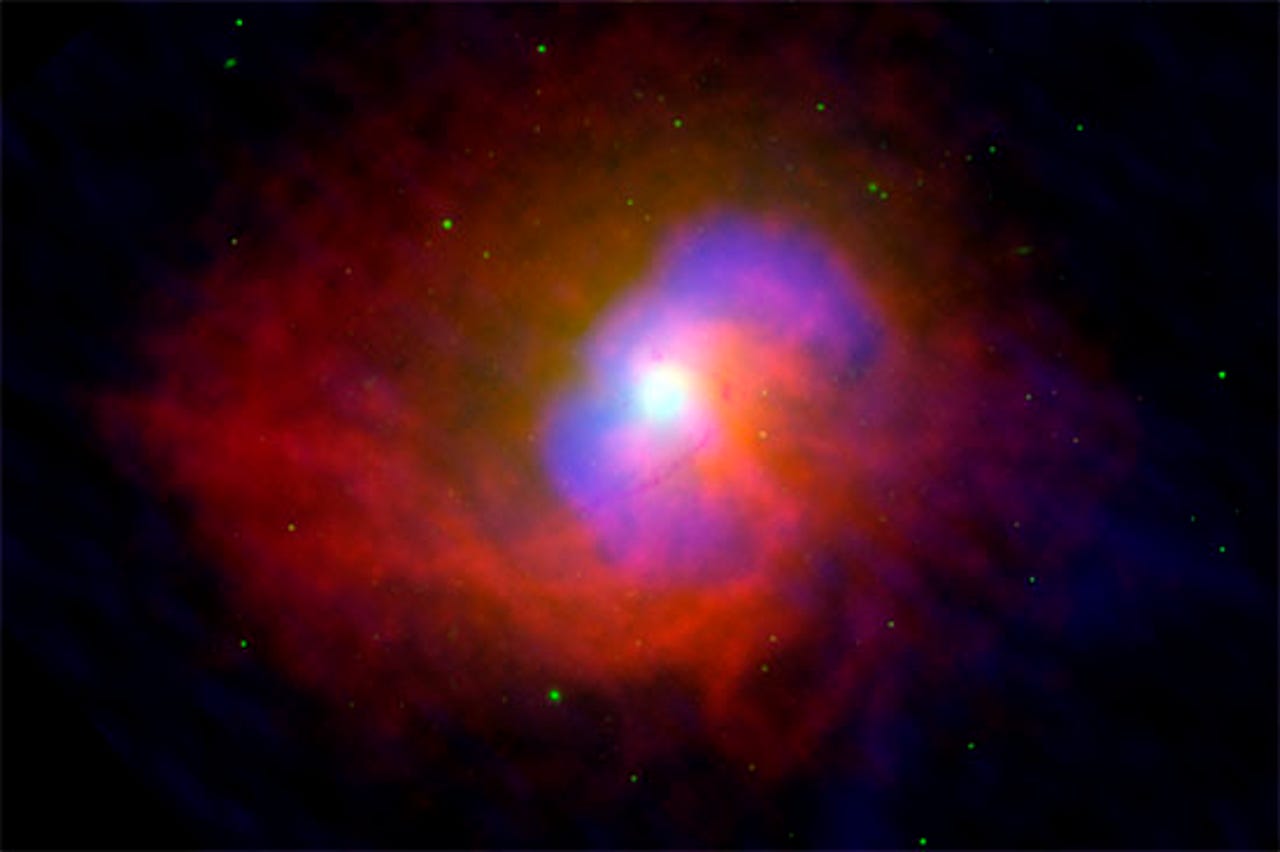Images: Black holes extremely energy-efficient


Gas bubbles
The gas bubbles (which appear purple here) inside this gas cloud surrouding a black hole intrigued astronomers at NASA's Chandra X-Ray Observatory. They turned out to be immense particle jets produced as matter falls toward the black hole. The jets may force stars and other objects away from black holes. The data being gathered now may help piece together exactly how black holes operate.
Jets
The particles in the gas discharge move at close to the speed of light. The amount of energy being discharged is almost equal to the amount of energy consumed in making them. As a result, black holes appear to be incredibly efficient. "If a car was as fuel-efficient as these black holes, it could theoretically travel over a billion miles on a gallon of gas," Christopher Reynolds, an astronomer of the University of Maryland, said in a prepared statement.